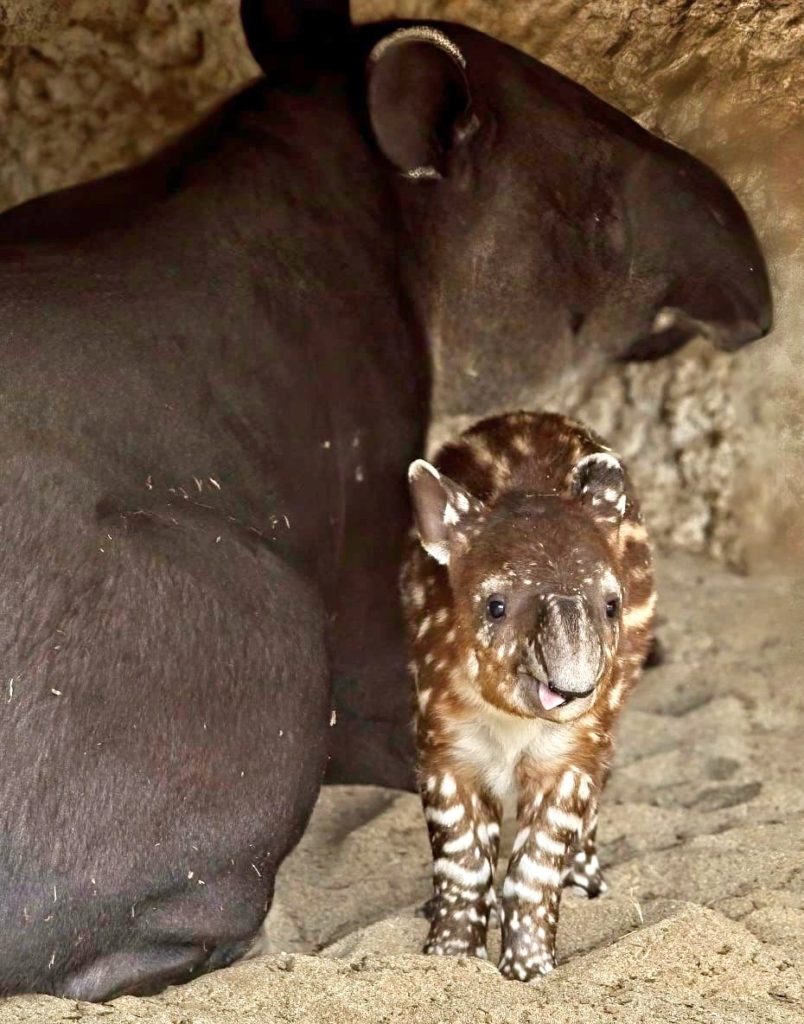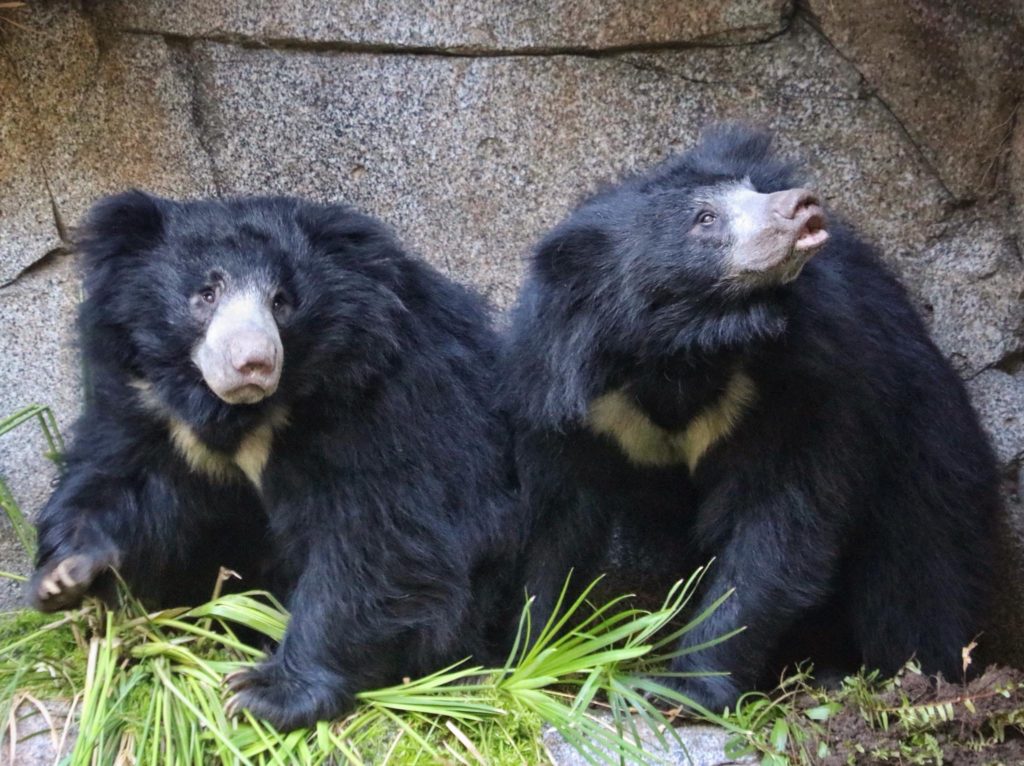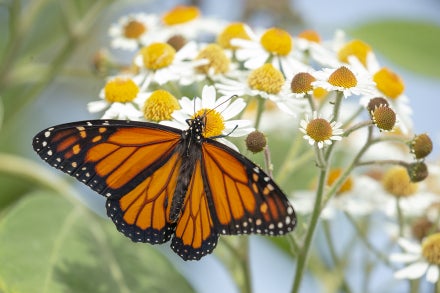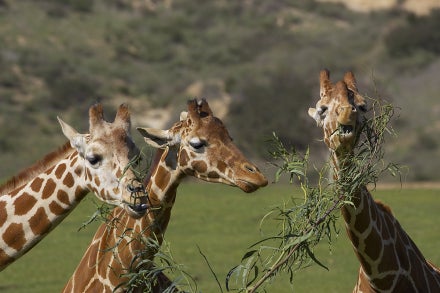
Zoo InternQuest is a seven-week career exploration program for San Diego County high school juniors and seniors. Students have the unique opportunity to meet professionals working for the San Diego Zoo, Safari Park, and Institute for Conservation Research, learn about their jobs, and then blog about their experience online. Follow their adventures here on the Zoo’s website!

We were fortunate enough to meet Dr. Rob Browning, a veterinary resident at the San Diego Zoo’s Jennings Center for Veterinary Medicine (JCVM). Though life at the Zoo is unpredictable, Dr. Browning says most of his job consists of performing diagnostics for sick animals, dentistry, surgery, and administering anesthetics. On a day to day basis, Dr. Browning arrives to work at 6:30 am, getting organized for his shift, looking at his schedule, and checking on patients that are still under observation. Next, Dr. Browning has morning meetings with the rest of the team, which includes other veterinarians, veterinary technicians and hospital keepers, to discuss the day’s plans and active cases. Sometimes he works as a duty vet, who is on call as an advisor or for any unexpected situations at the Zoo, which includes the treatment of local animals seen on grounds like ducks or squirrels, as well as those in managed care. Later, Dr. Browning meets back with the staff at the JCVM and the animal care teams in the afternoon. Finally he ends his day at 5pm if nothing major is happening at the hospital. Dr. Browning definitely has a challenging job, but says he loves the variety of tasks each day. He has had the opportunity to work with a wide range of species, from macaques to duikers! Dr. Browning’s motivation for being a zoological veterinarian is making a bigger impact through conservation, so working at the San Diego Zoo (whose goal is to end extinction) well suits his goals.

Dr. Browning had known that he wanted to work with animals prior to attending college, but it wasn’t until later that he began developing a passion for wildlife conservation. This led him to explore a career as a zoo veterinarian. There is a substantial amount of education and experience required to follow this path. Dr. Browning received his bachelor’s degree, as well as his masters degree in biology at Case Western Reserve University in Ohio. Dr. Browning also volunteered at the Cleveland Metroparks Zoo and did research on primates, elephants, prairie dogs, and flamingos. After receiving his master's, Dr. Browning was accepted to Virginia Polytechnic Institute and State University where he studied veterinary medicine. While at Virginia Tech, Dr. Browning did countless internships and externships, and after graduating from vet school, he moved to California and started as an intern at the JCVM. His vast array of experience and education were not easily attained; it was through hours of hard work and dedication that he was prepared for a career in veterinary care at the San Diego Zoo.

Dr. Browning works with several different types of animals, but most enjoys working with tapirs. Currently, Luna (a Baird’s tapir) is pregnant and expected to deliver a calf soon. Due to the rapidly-approaching delivery, staff are rotating through night shifts in case Luna gives birth. As a resident, Dr. Browning will likely go to the hospital when Luna delivers her calf to gain experience. In addition to Luna, there is another tapir being cared for at the hospital, Felix. Currently recovering from foot complications, Felix is being monitored because he was over-active during the last breeding season and wore down the skin on the bottom of his feet. Dr. Browning was responsible for looking over Felix’s previous medical records and determining the best anesthesia protocol in case surgery is needed. Dr. Browning likes tapirs because they are unique in their anatomy. Tapirs have an elongated nose proboscis (long, flexible snout), similar to the trunk of an elephant, but smaller in size. Taking care of these special tapirs at the Zoo helps staff learn more about this species and help with the conservation effort. Unfortunately, tapir populations are declining due to poaching and habitat loss.

One common procedure at the Zoo is using an X-ray machine to produce a radiograph (image) of the animals, but that has the potential to be dangerous for the vets. Everyone wears these tags that record the amount of X-ray radiation they absorb, so it can be analyzed annually. This is only a precaution, since the amount of radiation absorbed by staff is negligible.
The best part about being a veterinary resident (a veterinarian that is getting additional clinical experience and education) is the ability to aid in conservation efforts. An important way to prevent the extinction of animals is keeping them healthy and happy! Dr. Browning cares for the injured and ill animals in and outside the Zoo’s collection as well as preventing species from contracting diseases. Dr. Browning’s advice to those who want to help in conservation is to take advantage of your resources and get involved in your community or at your school. Here at the San Diego Zoo, there are hands-on volunteer opportunities as well as internship programs where you can help with conservation projects. Another resource is the Society for Conservation Biology—a global community that posts a wide range of opportunities to volunteer with conservation projects and even field work! Conservation is not only about exotic animals, but it also includes saving our natural resources, native species, and the environment. Dr. Browning recommends joining or starting a conservation club to get involved with local projects that support these efforts and spread awareness.

Dr. Browning’s years of experience and hard work have allowed him to gain some important skills in veterinary medicine. Throughout his journey, he’s spent most of his time volunteering at the Cleveland Zoo, working with San Diego Zoo Global through a veterinary externship, and interned at an exotic pet facility. Dr. Browning expressed the importance of working hard and getting good grades in school to set yourself apart from other students applying for the same competitive positions. Gaining as much experience as possible before entering a career in medicine is beneficial to prove you're qualified for the job. Some special skills that help when working around animals in a medical setting are communication, leadership, organization, the ability to understand animal behavior, and being able to think outside the box in intense situations. Creativity is especially important when working with highly intelligent species who know that they’re taking a trip to the vet, but don’t necessarily want to cooperate. Dr. Browning has had the opportunity to work with a wide range of animals through various research projects, which has helped him to stay motivated, work hard, and keep going above and beyond. Dr. Browning’s research on species conservation as well as his work in veterinary medicine have given him the experience and wisdom to acquire his dream job: protecting and saving the lives of a diverse group of animals ranging from the smallest lizards to adorable sloth bears!

Despite starting his veterinary studies with a focus on domestic animals, Dr. Browning prefers to work with exotic species. He says that they are the reason that zoos are his favorite place to work, as they are different and make every day special and unique. Working here allows him to acquire more practice in clinical skills such as anesthesia, dentistry, surgery, and fracture repair. He enjoys all aspects of the job, but surgery is his favorite. A treasured memory he shared from vet school was getting the chance to perform health evaluations on the three pandas that were at the Zoo in 2016. He loves having a variety of animals to work with, but he adores big carnivores and tapirs. The best thing about tapirs is that they can be scratched down to perform exams or ultrasounds and don’t require sedation!

Throughout our session with Dr. Browning, he gave us advice on ways to achieve his position as a resident at the San Diego Zoo’s hospital. He also spoke about the methods to sedate animals that he uses prior to performing surgeries and dentistry. Working assiduously through school, internships, externships, and currently being a resident at the Zoo, Dr. Browning has never been tired of his job. Putting the slim odds of becoming a resident at the JCVM aside, Dr. Browning powered through countless hours of studying and working toward his goal. He feels very lucky to have been chosen to be a resident because of how competitive the application process is. He said that a few things that may have set him apart from the crowd are his diligence, as well as being super organized. His skill set is not the only thing that led to him achieving his position, Dr. Browning also mentioned that good timing and luck are big reasons for his success. His love for his job overcomes its difficulty as he continues to save animals daily.

The interns with Dr. Browning, after learning all about what he does to help the residents of the Zoo. It was so exciting to see how the Zoo cares for such a massive and varied collection.
Week Six
Fall Session 2019




